29+ Physical Hazard Examples to Download
Working in a closed or open environment has external issues and problems that can cause risks to the well-being and performance of the population inside the given area. Some of the risks can present physical bodily harm that may differ in severity depending on the elements present in the context of the accident.
1. Physical Hazard Table of Contents
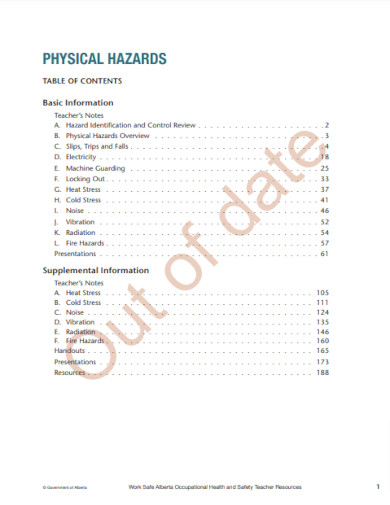
open.alberta.ca
2. Sample Physical Hazard Example
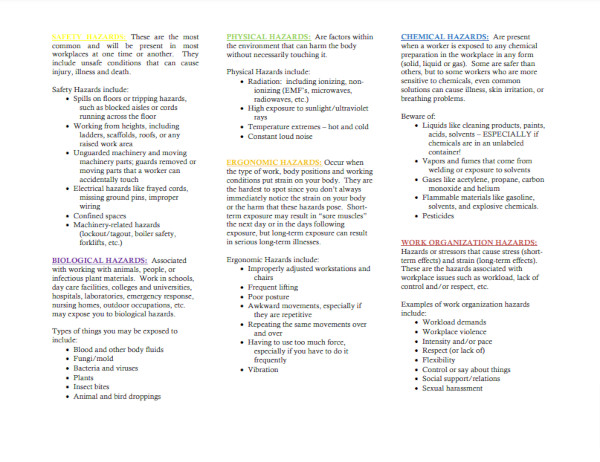
osha.gov
3. Physical Hazards in Food Template
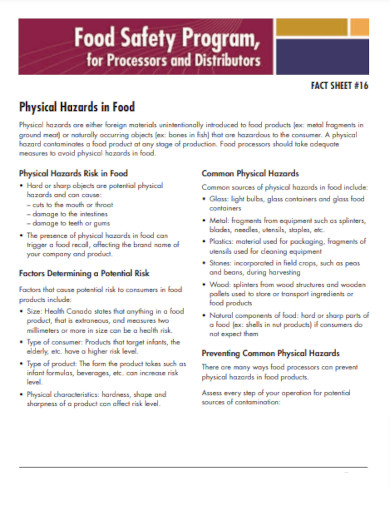
gov.mb.ca
4. Physical Hazards Recognition, Evaluation, and Control
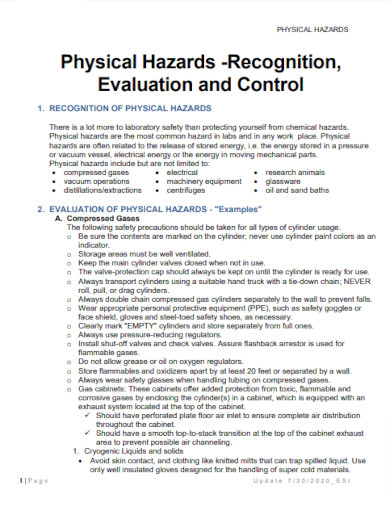
health.ucdavis.edu
5. Introduction to Physical Hazard
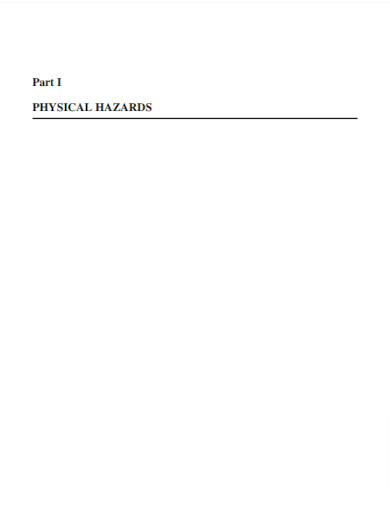
onlinelibrary.wiley.com
6. Editable Physical Hazard Example
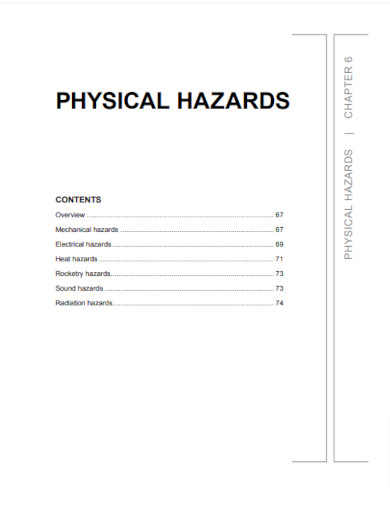
worksafesask.ca
7. Hazards in Health Care Workplaces
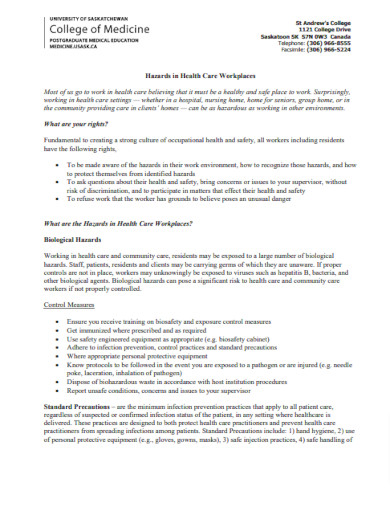
medicine.usask.ca
8. Printable Physical Hazard Example
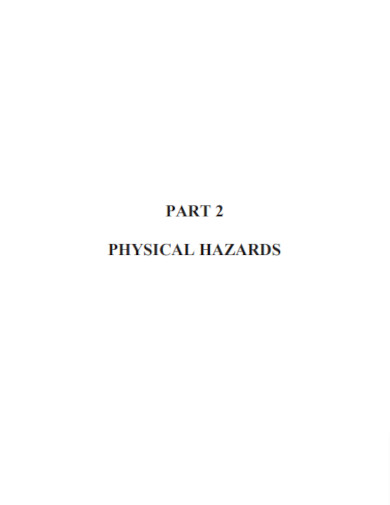
unece.org
9. Physical Hazard Identification and Control Table
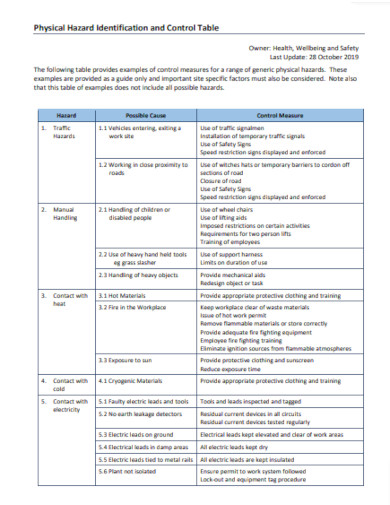
deakin.edu.au
10. Chemical and Physical Hazards in the Dairy Chain
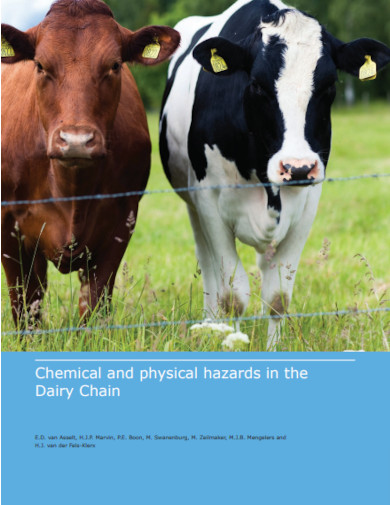
edepot.wur.nl
11. Food Contaminants and Hazards
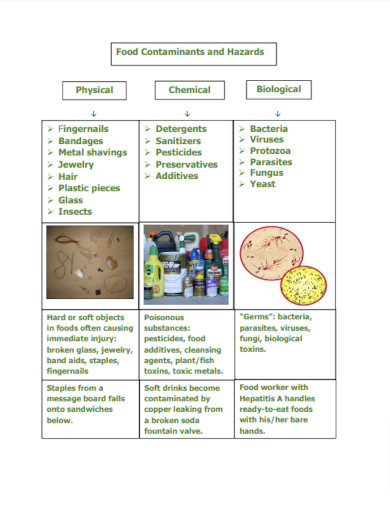
cabellhealth.org
12. UCR Physical Hazards Guide
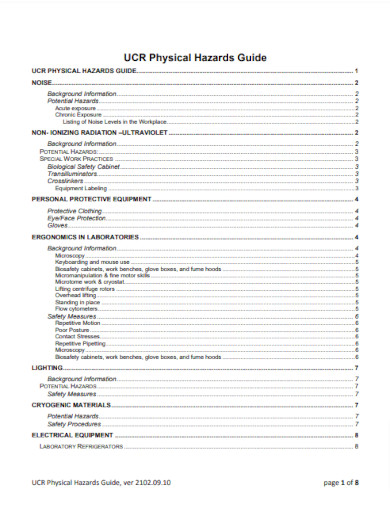
zaeralab.ucr.edu
13. Recognizing Workplace Hazards
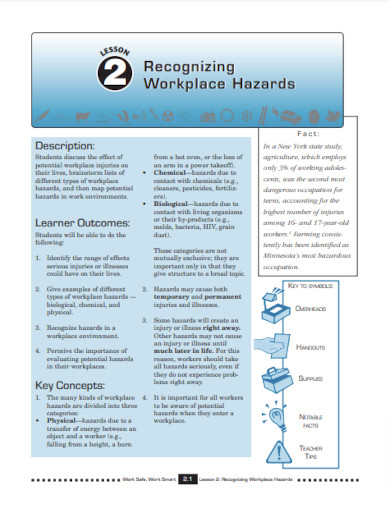
shsu.edu
14. Physical, Chemical and Biological Hazard
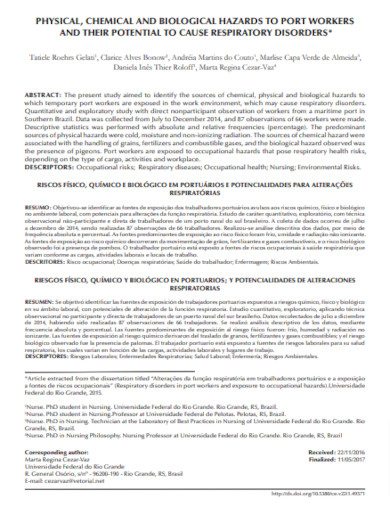
docs.bvsalud.org
15. Physical Hazards and Equipment Standard Operating Procedure
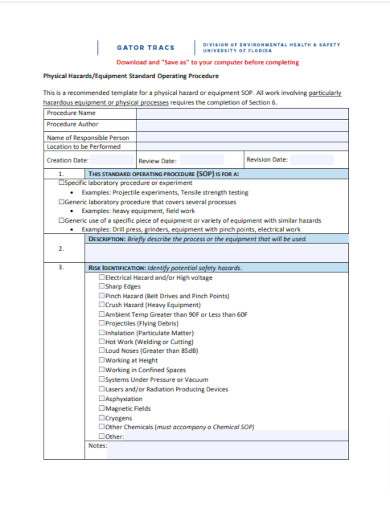
webfiles.ehs.ufl.edu
16. Physical Hazards Plant Example
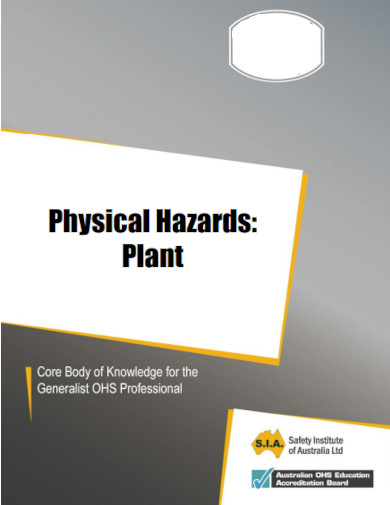
ohsbok.org.au
17. Hazard in Construction Industry
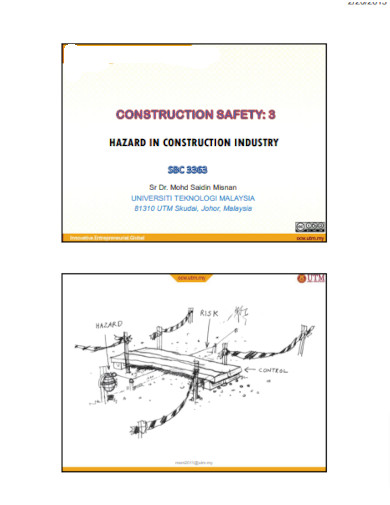
ocw.utm.my
18. Physical Hazards in the Workplace
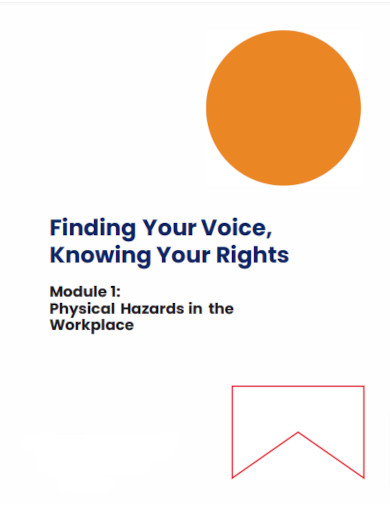
globalaccess.bowvalleycollege.ca
19. Hazard Analysis and Risk-Based Preventive Controls
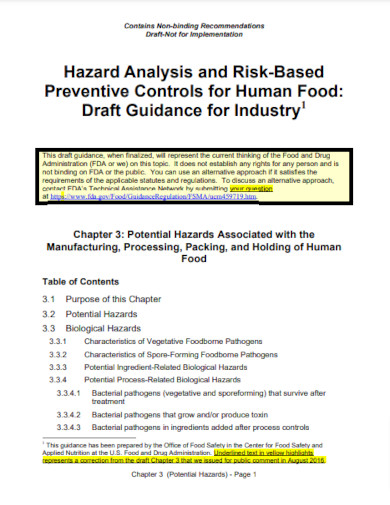
fda.gov
20. Physical and Chemical Hazards of Seafood
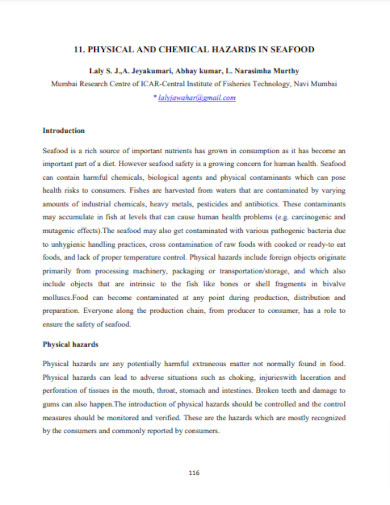
krishi.icar.gov.in
21. Compendium of Research Project Summaries on Physical Hazards
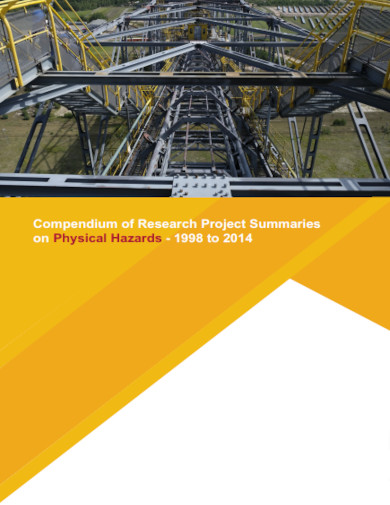
mhsc.org.za
22. Physical Hazards of Machinery and Equipment
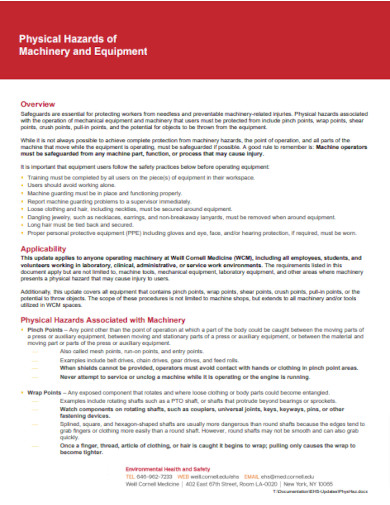
ehs.weill.cornell.edu
23. Overview of Biological, Chemical, and Physical Hazards
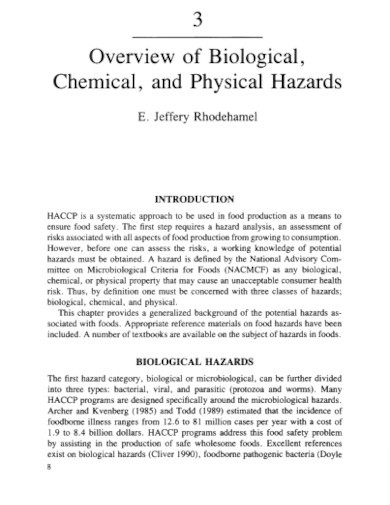
link.springer.com
24. Confined Spaces Physical Hazards
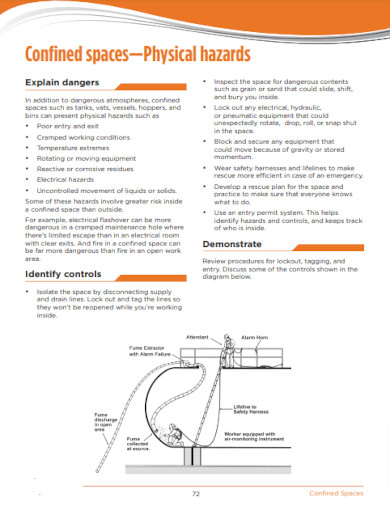
ihsa.ca
25. Three Types of Hazards Example
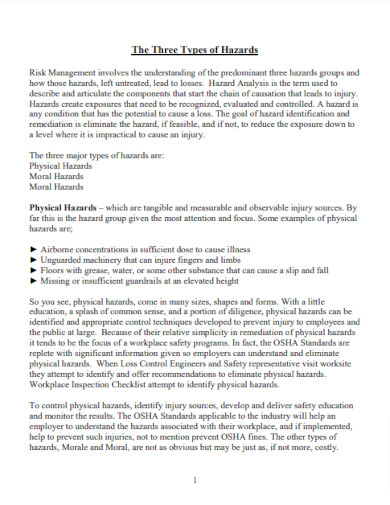
riskwise.biz
26. Hazards in Industry and Safety Measures
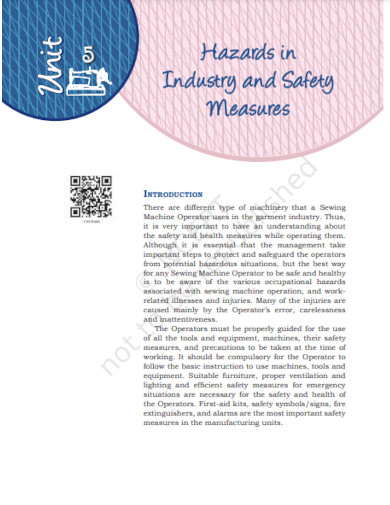
ncert.nic.in
27. Meat and Poultry Hazards and Controls Guide
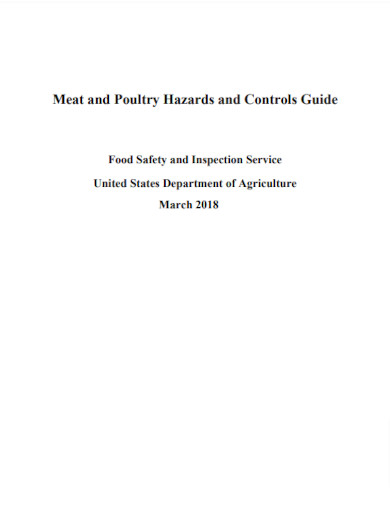
fsis.usda.gov
28. Physical Hazards in a Lab Example
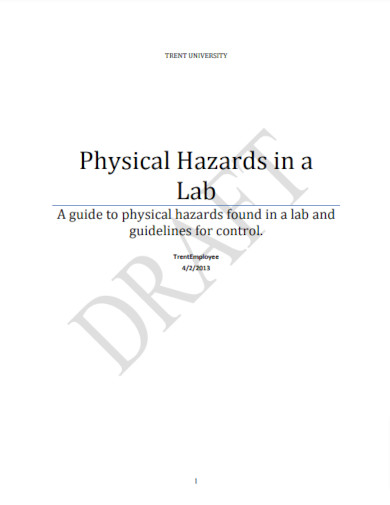
trentu.ca
29. Chemical and Physical Hazards
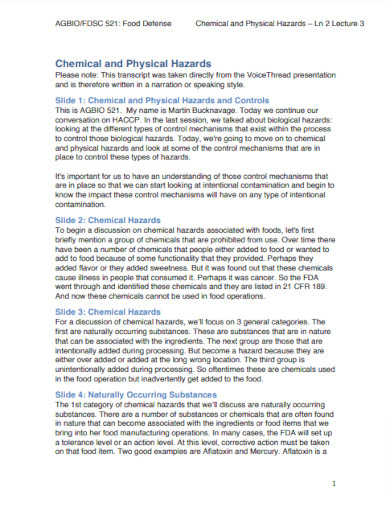
dept.psu.edu
30. Standard Physical Hazards Example
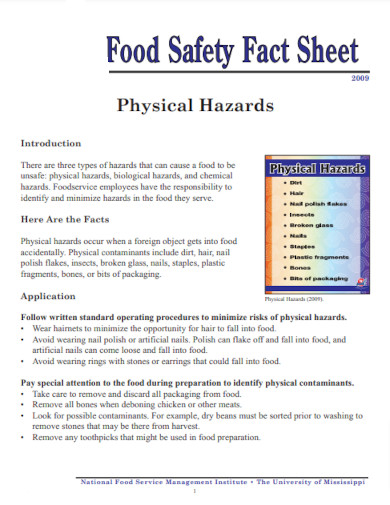
gulfportschools.org
What Is a Physical Hazard?
Physical hazards are specific objects, situations, biotic factors, and abiotic factors that can cause physical issues that will decrease the person’s well-being. A business or company will need to address these physical hazards and provide a way to mitigate or prevent these hazards from affecting the person. Not only will accidents affect the lives of the people, but they will also ruin the brand identity and image of the business or company.
How to Identify a Physical Hazard
Physical hazards have identifiable characteristics that people can observe and brainstorm about. For example, heat is an external factor that could affect the worker’s performance and will reduce their productivity and the quality of their product, service, or commodity. Not only that, but too much heat can lead to heat strokes and dehydration, which is highly detrimental to the well-being of the employee.
Step 1: Observe the Location of the Work or Job
You must first observe the environment in which the work or job will take place. The environment will determine most of the external factors that can cause physical hazards like the quality of the structure, furniture, the indoor climate, and the layout of the workspace.
Step 2: Observe the Usual Physical Workflow
One’s physical workflow can also introduce new external factors and situations where physical hazards will be present. For example, a trucker in their truck stop will have different physical hazards when compared to them on the road. Therefore you must try and observe the physical workflow and the ever-changing environment of the person’s flow during work.
Step 3: Identify the Physical Equipment and Instruments of the Work
If a worker will utilize physical equipment or instruments to conduct their work, then you must identify the various factors which the equipment and instrument will present. For example, when a mechanic works with a car, the car’s current state and the various car tools will determine the physical hazards that will be present.
Step 4: Determine any External Factors that Might Appear
There are also external factors that will be present in the environment during a specific time, event, situation, or period. You must determine and think about these temporary factors and try to reduce the risk these physical hazards can present to the workforce.
FAQs
Why is it important to know the physical hazards of a specific area?
Physical hazards are specific objects that can cause physical harm based on the severity of the situation. Each hosts multiple external factors that can harm different people and may cause issues in the future that could’ve been prevented or stopped.
What is risk management?
Risk management is a strategy that people can prepare and enforce to minimize the effect of physical hazards and reduce the risk of physical harm. Risk management requires the person to consider and identify physical hazards and potential risks in a given environment and situation.
What is the purpose of hazard identification in disaster preparedness?
Hazard identification will allow the person to identify and distinguish physical hazards that can occur during natural disasters. This will allow the person to prepare for any outcomes that may occur during the event of a natural disaster.
A physical hazard is an object or factor that can cause physical harm should a specific scenario or issue occur. One should try and identify physical hazards that will appear or be present in the given environment as a way to prevent any issues or dangers to their physical health or well-being.

